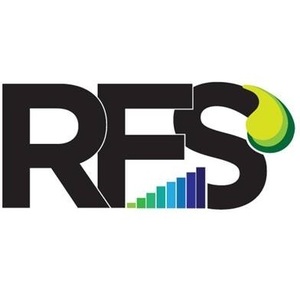EPA agrees to release proposed 2023 RVO in November

July 25, 2022
BY Erin Krueger
The U.S. EPA and Growth Energy on July 22 filed a consent decree agreement with the U.S. District Court for the District of Columbia that requires the agency to proposed 2023 Renewable Fuel Standard renewable volume obligations (RVOs) by Nov. 16, 2022, and finalize the 2023 RVOs by June 14, 2023. The court is expected to approve the agreement soon.
Growth Energy initially filed a complaint with the court on April 29 alleging that the EPA failed to promulgate a rule establishing the 2023 RVOs by the statutory deadline of Oct. 31, 2021. The EPA on May 23 opened a 30-day public comment period on a proposed consent decree that aimed to require the agency to release the proposed 2023 RVOs by Sept. 16, 2022, and issue a final rule setting the 2023 RVOs by April 28, 2023. According to court documents, both parties agreed to extended those deadlines to Nov. 16, 2022, and June 14, 2023, respectively.
Advertisement
“Yesterday’s agreement with EPA on a deadline for the 2023 renewable fuel volume requirements is an important milestone in setting the pace for growth as we usher in a new era of the RFS,” said Growth Energy CEO Emily Skor in a statement released July 23. “Growth Energy has led the charge in holding EPA accountable, including our April 2022 lawsuit against EPA for missing its statutorily mandatory deadlines. This recent agreement, one that is bound by court order and that avoids the uncertainty of continued litigation, ensures the certainty of the 2023 RFS requirements and further underscores Growth Energy’s steadfast commitment to keeping the RFS on sound footing now and into the future.
“Growth Energy will continue to lead engagement with EPA as it develops its proposal, while advocating for volumes that accelerate the move toward lower-carbon, lower-cost fuel in our transportation system,” Skor continued.
The EPA addressed the upcoming RFS rulemaking in the White House Office of Management and Budget’s Spring 2022 Unified Agenda of Regulatory and Deregulatory Actions, released on June 21. Information included in that regulatory agenda indicates the agency is working to propose and finalize the 2023 RVOs in line with the deadlines established in the proposed consent decree.
Advertisement
Related Stories
CountryMark on July 22 celebrated the completion of more than $100 million in upgrades at its refinery in Indiana, including those related to soybean oil storage. The facility produces renewable diesel via coprocessing technology.
ATOBA Energy and Air Moana are partnering to implement scalable solutions for the supply of SAF. The collaboration aims to ensure long-term SAF availability while supporting local initiatives to develop sustainable fuel production in Tahiti.
While final IRS guidance is still pending, the foundation of the 45Z program is well defined. Clean fuel producers should no longer be waiting; they can now move forward with critical planning and preparation, according to EcoEngineers.
Neste Corp. on July 24 released second quarter results, reporting record quarterly renewable product sales volumes despite weaker margins. SAF sales were up nearly 80% when compared to the first quarter of 2025.
Valero Energy Corp. on July 24 released second quarter results, reporting a profitable three-month period for its ethanol segment. The renewable diesel segment posted a loss, but the company’s new sustainable aviation fuel (SAF) unit operated well.
Upcoming Events










